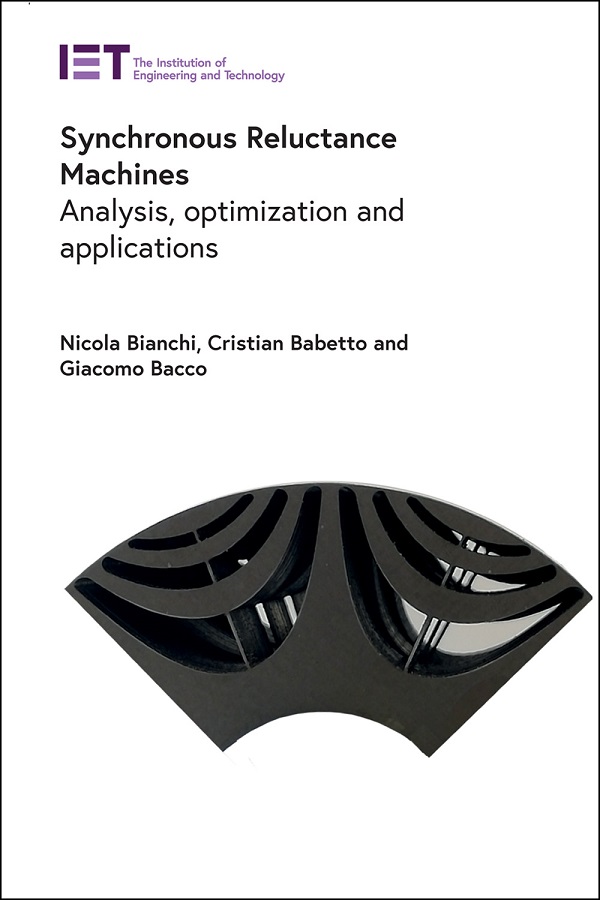- Agricultural Engineering and Technology
- Applied Physics
- Built Environment
- Computing and Networks
- Control, Robotics and Sensors
- Electrical Regulations
- Electromagnetics and Radar
- Energy Engineering
- Healthcare Technologies
- History and Management of Technology
- IET Codes and Guidance
- Manufacturing
- Materials, Circuits and Devices
- Model Forms
- Security
- Telecommunications
- Transportation

Synchronous Reluctance Machines
Analysis, optimization and applications
by Nicola Bianchi, Cristian Babetto, Giacomo Bacco
Reluctance motors induce non-permanent magnetic poles on the ferromagnetic rotor; the rotor does not have any windings and torque is generated through magnetic reluctance. Synchronous reluctance motors (SyRMs) have an equal number of stator and rotor poles. Reluctance motors can deliver high power density at low cost, so they are finding increasing application in the transport sector. Disadvantages include high torque ripple and the complexity of designing and controlling them. Advances in theory, computer design, and control electronics can overcome these issues.
This hands-on reference covers the concept and design of synchronous reluctance motors. It conveys all key topics required to understand this technology. Chapters cover magnetic materials, geometry, modeling, design and analysis, optimization, production technology, fault-tolerance, experimental validation, and self-sensing-oriented optimization.
Synchronous Reluctance Machines: Analysis, optimization and applications is ideal for researchers working on electrical machines and motors, particularly electric vehicles. The writers - experts from academia and industry - provide the reader with an excellent background and understanding of the core concepts involved in synchronous reluctance motors such that they can engage in their own R&D.
The authors of this book are kindly donating all royalties to Operazione Mato Grosso.
About the Author
Nicola Bianchi is a full professor at the Department of Industrial Engineering of the University of Padova, Italy. He is the head of the Electric Drive Laboratory, where research focuses on electrical motors and their control. His research interests include the analysis of the performance, determination of the parameters, design, optimization and control of innovative machines. He is an IEEE Fellow Member. He is co-author of more than two hundred papers and several books.
Cristian Babetto is a design specialist at Marelli Motorsport, Corbetta, Italy. His activities focus on the design and analysis of electromagnetic devices and high-performance electric motors for motorsport applications. He received a PhD in industrial engineering from the University of Padova (Italy) in 2020. During his PhD studies, he mainly worked on the analysis and optimization of synchronous reluctance machines for fault-tolerant and high-speed applications.
Giacomo Bacco is an E-Motor Engineer in the Advanced Engineering group at Magna Powertrain. His work includes the analysis and design of electric drives for automotive applications. He received the BSc, MSc and PhD degrees from the University of Padova in 2013, 2016 and 2020, respectively. His research interests covered the analysis, design and optimization of electric machines, in particular anisotropic synchronous machines (IPMM and SyRM).
Publication Year: 2021
Pages: 369
ISBN-13: 978-1-83953-263-4
Format: HBK
